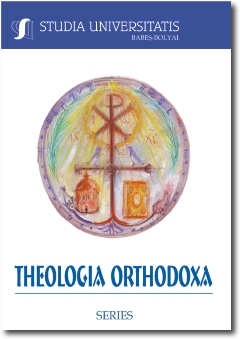OVERCOMING ONTO-THEOLOGY DURING THE AGE OF CONSTANTINE
OVERCOMING ONTO-THEOLOGY DURING THE AGE OF CONSTANTINE
Author(s): Nicolae TurcanSubject(s): Christian Theology and Religion
Published by: Studia Universitatis Babes-Bolyai
Keywords: onto-theology; Council of Nicaea; dogmatics; orthodox theology; antinomy.
Summary/Abstract: This text tries to answer from within an Orthodox theological perspective to a contemporary philosophical challenge. The challenge lies in the accusation of onto-theology that postmetaphysical philosophies bring, firstly, to the metaphysics and, secondly, as a consequence, to the theology itself. This attack has an impact on the Church tradition and especially on its dogmas: they become not only relative, but futile, weak witnesses of an outdated historical context, ineffective and irrelevant for the contemporary world. The reference to the Constantiniane time, found in these pages, is justified by the fact that it was precisely then, at the First Ecumenical Council (Nicaea, 325) that the first official statement of an essential Orthodox teaching, i.e. the unity of the divine nature between Father and Son, was formulated. This antinomical teaching has in nuce the capacity of overcoming onto-theology, movement present in many philosophies today, subjectivist and relativist in their great majority, so unacceptable from the orthodox theological point of view. In the following pages I will formulate a three-step answer: (1) defining the onto-theology; (2) underlining the relationship between faith, onto-theology and Church Dogmatics; (3) affirming the overcoming of onto-theology (referring to the First Ecumenical Council presided by Constantine the Great).
Journal: Studia Universitatis Babes-Bolyai - Theologia Orthodoxa
- Issue Year: LIX/2014
- Issue No: 1
- Page Range: 93-98
- Page Count: 6
- Language: English

